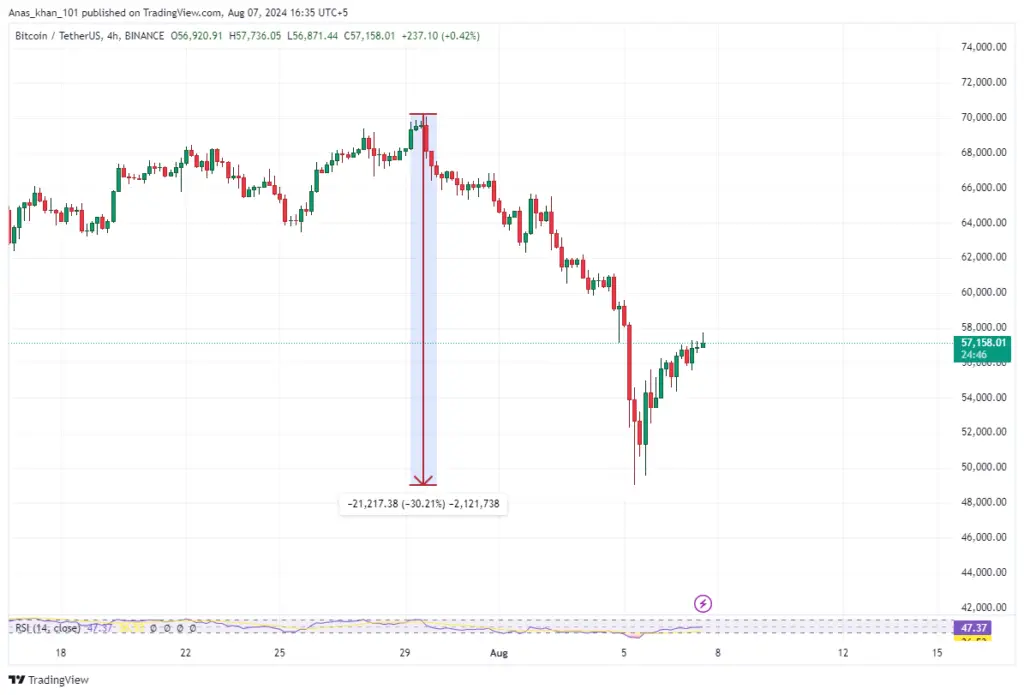Crypto Critics File Updated Campaign Finance Complaint Against Coinbase
Cryptocurrency critics, including Molly White and the consumer advocacy group Public Citizen, have recently intensified their scrutiny of Coinbase, filing an updated complaint with the Federal Election Commission (FEC). The complaint alleges that Coinbase has violated U.S. campaign finance laws. At the center of the dispute is whether a government contract awarded to Coinbase for the custody of seized cryptocurrency breaches federal campaign finance regulations.

Background of the Dispute
On August 1, 2024, Molly White, known for her critical stance on cryptocurrency through her platforms “Web3 is Going Just Great” and “Follow the Crypto,” along with Public Citizen, initially lodged a complaint against Coinbase. The crux of their argument is that Coinbase, a major cryptocurrency exchange, has committed a violation of campaign finance laws. This complaint was rooted in Coinbase’s activities concerning a significant $25 million donation to the Fairshake Super PAC, which advocates for pro-crypto policies.
The donation in question was made in May 2024. Critics argue that, as a federal contractor, Coinbase’s political contributions are in breach of established campaign finance regulations. This stance is based on the belief that a federal contractor should not make substantial donations to political action committees (PACs) that can influence federal elections.
Coinbase’s involvement with the Marshals Service began in early March 2024, as they negotiated a contract to handle the custody of seized cryptocurrencies. The funds associated with this contract are derived from assets forfeited from high-profile cases, including those related to the collapsed FTX cryptocurrency exchange and the Silk Road platform.
Coinbase’s Position
Coinbase has firmly denied these allegations. Paul Grewal, Coinbase’s Chief Legal Officer, has publicly defended the company’s actions. On social media platform X (formerly Twitter), Grewal emphasized that Coinbase’s involvement with the Marshals Service does not constitute being a federal contractor in the sense intended by campaign finance laws. He clarified that the seized assets in question are not paid for by Congressionally appropriated funds, arguing that this exemption means Coinbase is not subject to the same restrictions as other federal contractors.
Grewal further noted that Coinbase’s political contributions are balanced, having made equivalent donations to both Democratic and Republican Super PACs—$500,000 each to House and Senate funds for both parties, respectively, for the 2024 election cycle. This, he argues, underscores the company’s commitment to bipartisanship and neutral political engagement.
The Updated Complaint
On August 5, 2024, White and Public Citizen filed an updated complaint challenging Coinbase’s rebuttal. The updated complaint asserts that the Assets Forfeiture Fund, from which Coinbase is compensated, is indeed a Congressional appropriation. According to the critics, this makes Coinbase a federal contractor by the standards of campaign finance law, despite the company’s claims to the contrary.
The updated complaint argues that because the seized cryptocurrencies were originally obtained through law enforcement actions and are managed with Congressional appropriations, Coinbase’s financial dealings with the Marshals Service should be classified as a federal contract. As such, any donations made by Coinbase to political action committees, including the Fairshake Super PAC, would be considered violations of federal campaign finance laws.
Public Citizen’s Response
Rick Claypool, Research Director at Public Citizen, has been vocal in criticizing Coinbase’s actions. Claypool has accused Coinbase of exploiting legal loopholes and undermining campaign finance regulations laid out in the Citizens United case of 2010. He describes Coinbase’s political contributions as part of a broader trend of corporate lawbreaking facilitated by lax enforcement of campaign finance laws.
Claypool’s critique emphasizes that the FEC must take a firmer stance against such practices to prevent further abuses. He argues that the substantial contributions made by Coinbase and other corporations in similar situations highlight a troubling pattern of influence peddling and regulatory evasion.
Broader Implications and Analysis
The dispute between Coinbase and its critics touches on broader issues within U.S. campaign finance and corporate influence in politics. The allegations against Coinbase are part of a larger debate over the extent to which federal contractors and other entities can engage in political activities without breaching legal boundaries.
The Citizens United case, which allowed for increased political contributions by corporations and unions, has been a focal point in discussions about campaign finance reform. Critics argue that this decision has led to greater corporate influence over the political process, as entities with significant financial resources can now contribute large sums to Super PACs and other political organizations.
Coinbase’s situation exemplifies the complexities of these legal and ethical debates. As a major player in the cryptocurrency industry, Coinbase’s financial practices and political contributions are under intense scrutiny. The company’s defense—emphasizing compliance with legal standards and neutrality in political contributions—contrasts with the critics’ view that existing laws are being exploited.
The Future of Campaign Finance and Cryptocurrency
The ongoing conflict between Coinbase and its critics may have implications beyond this specific case. It highlights the need for clearer regulations and more robust enforcement mechanisms to address potential conflicts of interest and abuses in campaign finance.
As cryptocurrency continues to grow and evolve, regulatory frameworks will need to adapt to address new challenges and ensure transparency. The intersection of cryptocurrency and campaign finance is an area that may see increased regulatory attention, particularly as cryptocurrencies become more integrated into mainstream financial systems and political activities.
The Coinbase case serves as a critical test of how well current regulations can handle the complexities introduced by modern financial technologies and their intersection with politics. The outcome of this case could influence future legal interpretations and enforcement practices related to campaign finance and federal contracting.
The ongoing dispute between Coinbase and its critics over campaign finance laws reflects broader tensions in the regulatory landscape surrounding cryptocurrencies and political contributions. As the situation develops, it will be crucial for both the Federal Election Commission and other regulatory bodies to address these issues transparently and effectively to maintain the integrity of the political process and ensure fair play in campaign finance.
The resolution of this case may set important precedents for how similar issues are handled in the future, influencing both the cryptocurrency industry and the broader political and regulatory environment. As such, stakeholders from all sides of the debate will be closely watching the developments in this high-profile case.



